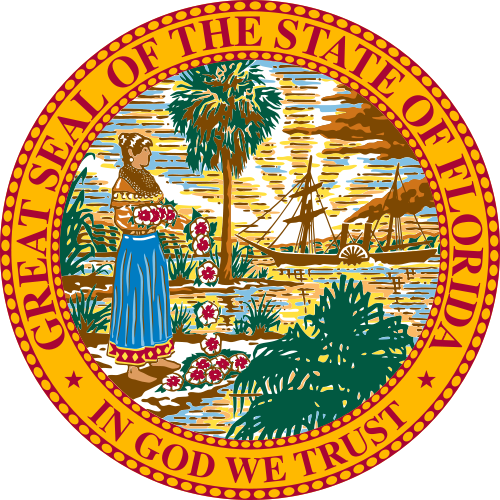Every car in Florida and the rest of the United States must have a license plate, and the number on this license plate is tied to quite a bit of information. Along with the VIN number, the license plate number is a key identifier for a car. If you want to access more information on a car, then a license plate search can help you do so. Here’s everything you need to know about looking up license plate numbers in Florida and why you would need to.
How to Do a Florida License Plate Search
You have a couple different options to obtain information using a Florida license plate number. The Florida Department of Highway Safety and Motor Vehicles can fulfill lookup requests made by mail, phone or in person. But the faster route would be to use a site with a license plate lookup tool. One such site is FreeBackgroundCheck.org.
You can run a search on FreeBackgroundCheck.org in a matter of seconds. Here’s how:
- From the FreeBackgroundCheck.org homepage, click the Plate header to switch to that search option (the site also has search tools using names, phone numbers, email addresses and physical addresses).
- Enter the license plate number, select Florida from the state drop-down box and click Search.
- The site will return the make, model and year of the vehicle in question. You can click View Report to see far more information.
Why Would You Want a Florida License Plate Lookup
There are two types of information you can find on a car through its license plate:
- Owner information
- Vehicle information
Although there are a variety of reasons why someone would want to look this up, by far the most common is when they’re considering purchasing the car. If you’re planning to buy a car in Florida, a license plate lookup is simply part of your due diligence in researching the car and making sure you don’t get scammed. Here’s how each type of information is important for car purchases.
Owner Information
It’s vital that you find owner information on a car before you consider handing over any money for it. People run all kinds of scams, and since cars are expensive, car sales are ripe for scam and fraud.
Let’s say that you’re buying a car from John Smith in a private party sale. There’s no guarantee that he’s actually the owner of the car. Maybe he stole it, and now he’s trying to get rid of it and pocket some cash in the process. If you look up the registration information, you can make sure that the person selling you the car is the registered owner of the car.
Sure, you could ask to see the registration to check the name on it, but it’s easy enough to create a doctored vehicle registration that will fool most people.
While you should find out who owns a vehicle when you’re planning to buy it, this isn’t the only reason to check the ownership records. It’s also good to see how many owners have had a car. If a car has had many owners in a short period of time, that’s a red flag. It may indicate the car didn’t satisfy the previous owners, or it could mean that the previous owners only wanted a car for the short term. Short-term owners usually don’t take care of cars nearly as well as long-term owners do.
Vehicle Information
It’s also important to research the history of a vehicle before you buy it, and you can do that when you look up the license plate. The first thing to look for here is accident records. A car with an accident isn’t necessarily ruined, but again, this is a red flag. Just because a car is repaired after an accident doesn’t mean it has the same structural integrity. If you see one or multiple accidents on a car’s record, you may want to look at other options or negotiate a lower price.
The vehicle history report tells you if the car was involved in any natural disasters, as well. If a car was ever exposed to a flood, that’s a huge red flag that you need to know about before you decide to buy it.
History reports often include maintenance records, giving you an idea of how well the car has been cared for over the years and what components have been replaced. Through the vehicle information you can find through a license plate lookup, you’ll get a better picture of the car and its condition, beyond what you can see by just looking at it.
Conclusion
A license plate lookup is the most effective way to verify who owns a car and find out more about that car. Fortunately, the internet has made it much simpler to access vehicle reports using just a license plate number, and you can quickly do your homework on a car you’d like to buy.
California license plate lookup
Connecticut license plate lookup

